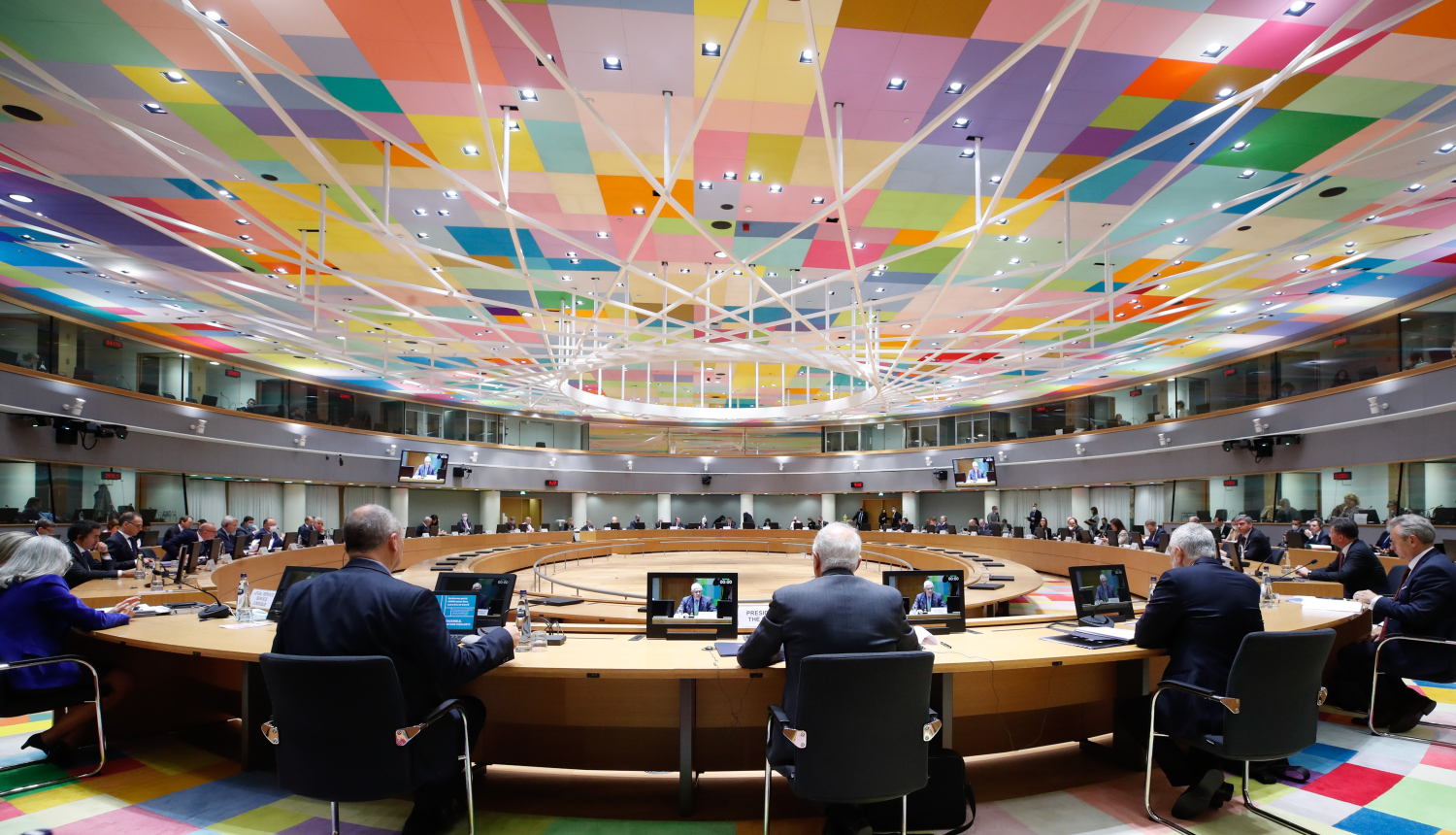On 15 November 2021, the Minister of Foreign Affairs of Latvia, Edgars Rinkēvičs, took part in the meeting of the EU Foreign Affairs Council in Brussels, at which the foreign affairs ministers of EU Member States discussed the situation in the Sahel and the Western Balkans, and the EU’s security and defence issues. Views were also exchanged on developments in Belarus and Ethiopia.
Edgars Rinkēvičs presented Latvia’s position and underlined the need for the EU to continue increasing pressure on Belarus. Thereby political support for the fifth round of sanctions would be the right step to take. The Minister thanked the EU High Representative for Foreign Affairs and Security Policy, Josep Borrell, and the European Commission for a prompt and active dialogue with the countries of origin of migration the citizens of which have been entering the territory of Belarus. Edgars Rinkēvičs also expressed certainty that the sixth round of sanctions must be implemented if the hybrid attack by Belarus continues. We must go ahead with our support for the Belarusian civil society, he said. The Latvian Foreign Minister called on EU institutions to work on the revision of the legal framework at EU level in order to provide comprehensive support for the strengthening of the EU’s external border.
The EU foreign ministers then discussed developments in the Sahel, Mali in particular. Edgars Rinkēvičs voiced concern over the reluctance of the Malian transitional government to move towards the establishment of a democratically elected civilian administration. The Minister said he hoped that the election date will be announced as soon as possible and a democratic transition roadmap will be created for the restoration of constitutional order and transfer of power to representatives elected by the people. A decisive and concerted action by the EU is needed to promote the democratisation process.
Therefore, joint efforts should continue to address the root causes of poverty, chronic food shortage and undernourishment, climate change and armed conflicts in the Sahel. To accomplish that, the coordination of international efforts should be improved and ways sought to use the existing instruments more effectively. Latvia continues providing contribution to the region’s security by taking part in the EU training mission, EUTM Mali, and the United Nations Multidimensional Integrated Stabilization Mission, MINUSMA, Edgars Rinkēvičs underlined.
Addressing the state of affairs in Afghanistan, the Latvian Foreign Minister expressed support for the European perspective of the Western Balkans countries and the strengthening of the EU’s engagement with the region to promote positive change and bring the region closer to the EU. The EU should be more involved in the process of support and supervision of reforms, especially in the field of the rule of law, the Minister said. He noted that it was essential to sustain a regular dialogue on the foreign policy and security policy topics, support an inclusive regional cooperation, good neighbourly relations and respect of EU values in the region. The understanding of the region’s countries should also be increased of the EU and resilience to a manipulative foreign interference, disinformation and other hybrid threats.
A political dialogue at all levels is vital for stability in Bosnia and Herzegovina and sustainability of reform, the Foreign Minister noted. He added that Kosovo and Serbia are expected to be involved constructively in the Belgrade-Pristina dialogue and to refrain from unilateral actions. The process of the two countries’ European integration and long-term stability in the region are contingent on the results of the dialogue, said Edgars Rinkēvičs.
Foto: EU NewsRoom




